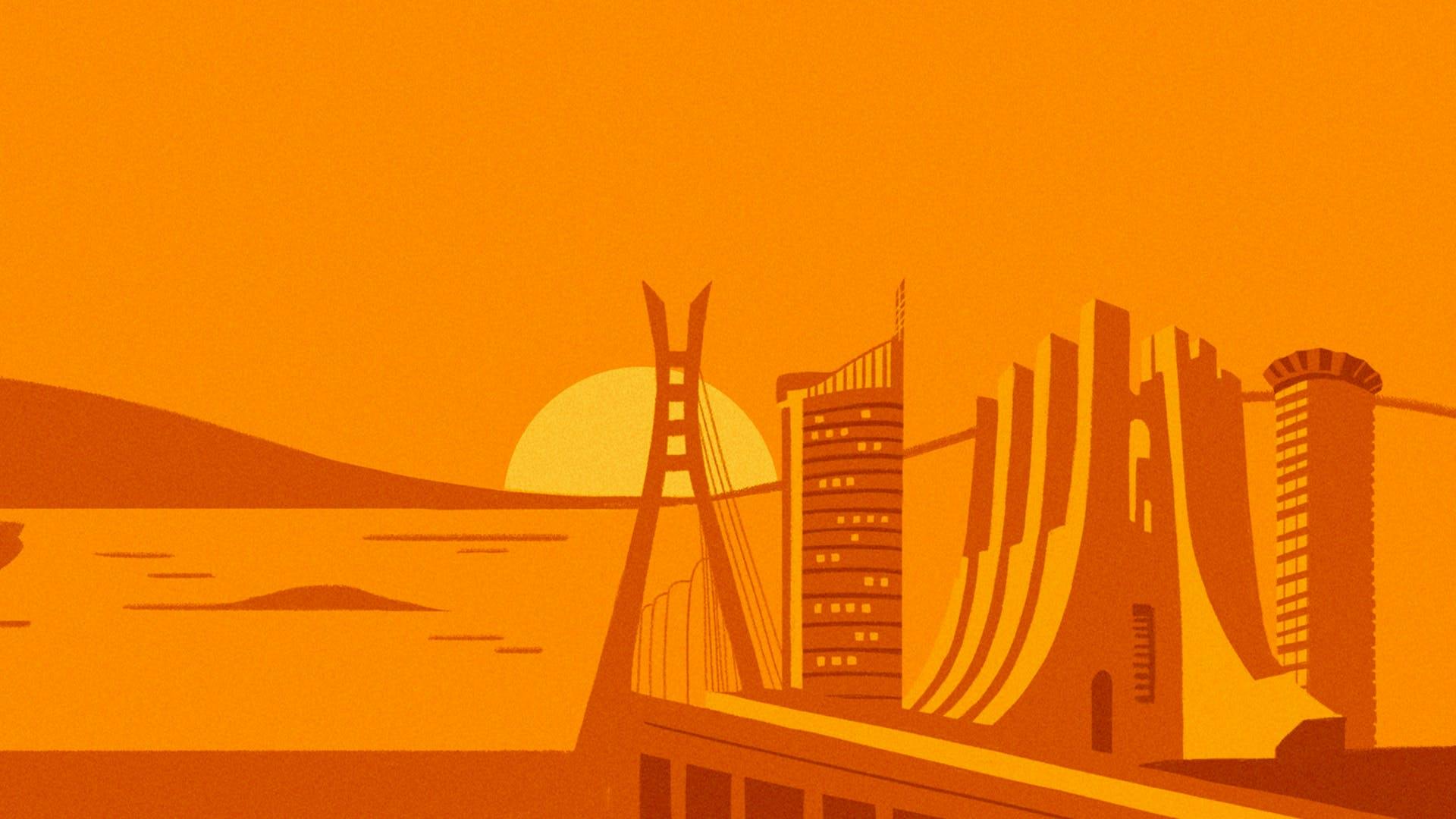Want to launch a business in Africa? These four cities are great places to start
ast and West Africa are home to a huge range of cultures, from the bustling megacity of Lagos to the tranquil savannah surrounding Nairobi. Inspired by the quickly expanding startup scenes in both regions, we created the Africa impact series – four city guides covering startup ecosystems in Accra, Kigali, Lagos and Nairobi.
These titles highlight startups, accelerators, spaces and investors that align with the UN’s Sustainable Development Goals. The inspiring entrepreneurs profiled are creating innovative solutions to social, environmental and economic challenges on both a local and global scale.
Accra, Kigali, Lagos and Nairobi don’t represent the diversity of startup ecosystems across the entire African continent, but we hope that these books provide a useful and inspiring entry to the region for curious international investors and entrepreneurs.
Want to know more about these ecosystems? Informed by the Africa impact series, here’s what you need to know.
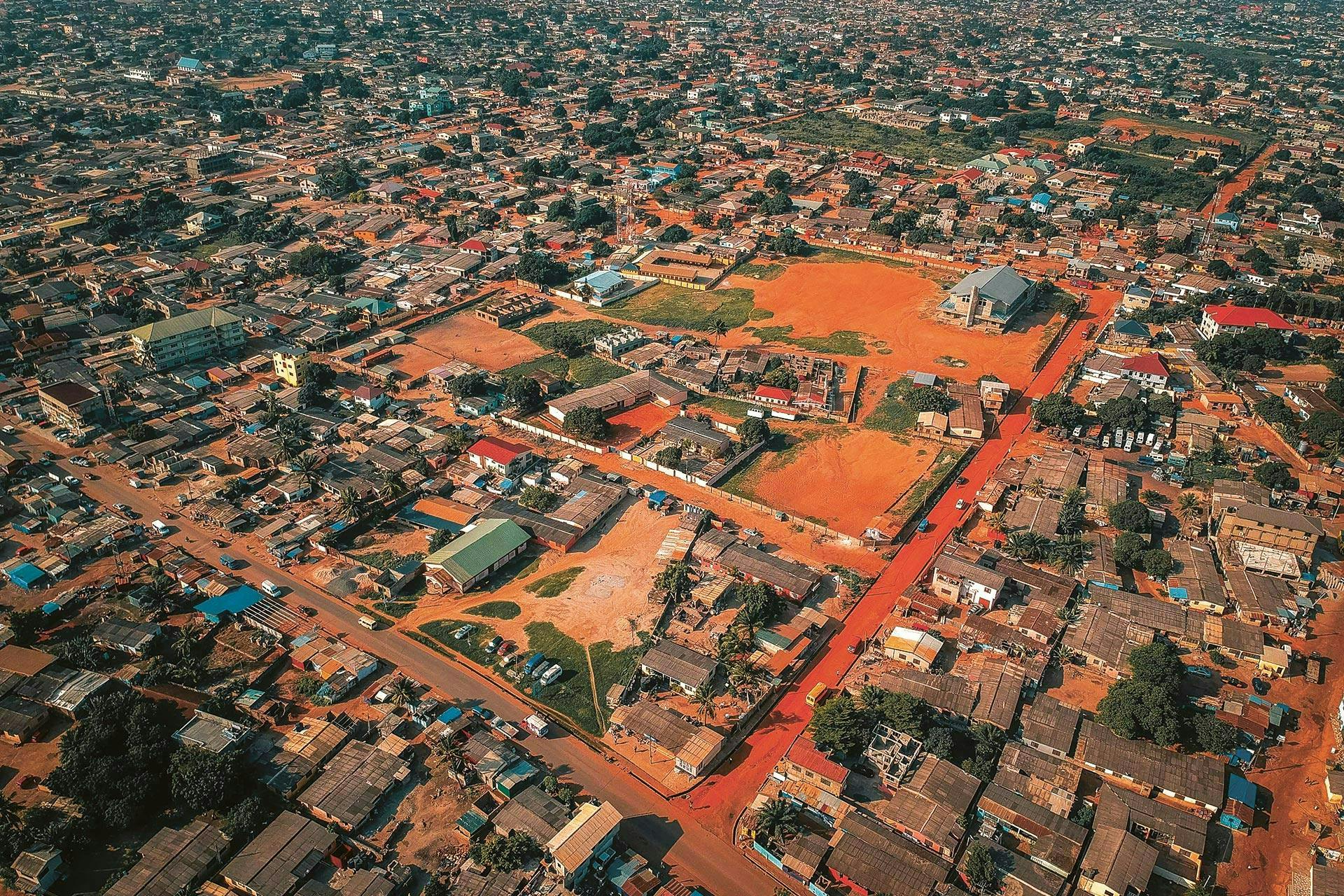
Accra, Ghana. Photo: Virgyl Sowah/Unsplash
Accra: A Cosmopolitan Hub in West Africa
Accra is described as a city of positive change by Richard Yeboah, project director of Ghana Innovation Hub and managing director of MDF West Africa. It's the main entrepreneurship hub in Ghana and a great place for entrepreneurs looking to expand across West Africa to start a business. With a diverse population of 2.5 million people, it's a cosmopolitan hub.
Accra is also one of the youngest cities in the world – 57% of its population is under the age of 25. According to the Mastercard Index of Women Entrepreneurs 2019, women make up 38% of business owners. There's lots of energy, international restaurants, sprawling beaches and a vibrant nightlife.
Ghana has the second fastest internet connection in the region and the highest mobile phone penetration, making it a convenient place to set up a tech-based venture. Coworking spaces including Impact Hub Accra and Ghana Innovation Hub provide early-stage businesses with the infrastructure they need to thrive, and pan-African entrepreneur training school and incubator MEST has a hub here.
Innovating for social impact
There’s impactful innovation in education, health and agriculture in Accra. Solutions for mobile online learning are being created by Chalkboard Education and eCampus. Verifie Health is reducing the stigma around sex education, and Eazz Foods processes eggs from female smallholder poultry farms into powder for industrial use.
What unites these companies is their focus on empowering others in their communities. Their success is tied to the success of the communities they are based in and support.
[Want to learn more about the Accra ecosystem? Order your copy of Startup Guide Accra.]
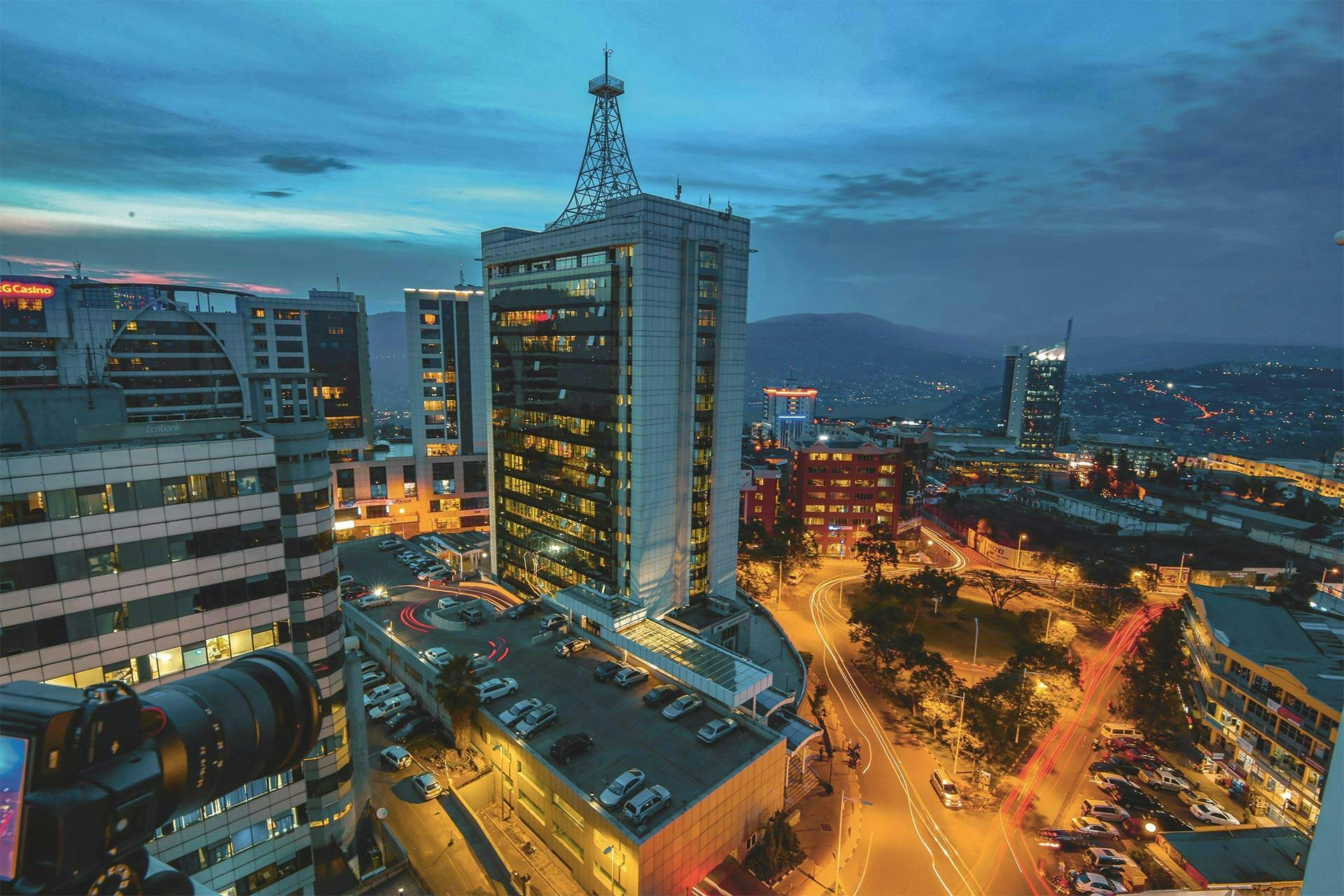
Kigali City Tower. Photo: One Zone Studio/Unsplash
Kigali: The Rising Star in East Africa
The Rwandan Government has invested heavily in infrastructure and business development, resulting in Kigali quickly becoming a thriving startup hub.
The country routinely ranks as one of the least corrupt in Africa and Rwanda ranked ninth in the world for gender equality according to the Global Gender Gap Report 2020. Kigali is one of the safest and cleanest capital cities in the world, and 60% of the city’s population are youth.
Rwanda prides itself on its openness to business and international visitors. Citizens of every country are entitled to a 30-day visa on arrival. There's a dedicated entrepreneur visa and the business registration process is extremely easy. As a foreigner, you can register your business for free on arrival and be up and running within 24 hours.
Kigali’s startup scene is quickly growing
These government efforts have led to the development of a startup scene that’s rapidly growing. Kigali is also a hub for international meetings and conferences – it hosts the second-largest number of international conferences of any African city.
Kigali is also an affordable city to live in, with welcoming locals and an international community. People are friendly and collaborative in their approach to doing business, and English and French are widely spoken, making it an easy move for international entrepreneurs.
Wireless internet can be patchy depending on where you live in the city, but coworking spaces such as Westerwelle Startup Haus Kigali and Impact Hub Kigali can provide a stable internet connection and much more to support your business. There’s also an infrastructure gap between Kigali and the rest of Rwanda – electricity and internet connections can be limited outside of the city – but innovative local businesses are coming up with creative ways to reduce the divide, such as using drones for deliveries to remote areas.
Rwandan startups solve local problems with global applications
There are a lot of tech-based startups in Rwanda, with many products and services developed to solve local problems but with global application. DMM.HeHe helps companies stay relevant in times of digital shift and has developed smart logistics services. Fintech startup Exuus developed the blockchain-based SAVE platform, which enables cashless transactions within saving groups. Kigali is also known as an R&D hub.
There's also a big commitment across the startup ecosystem to develop it for future generations. Coworking spaces, investors, accelerators and philanthropic organizations such as Segal Family Foundation are committed to providing future generations with more opportunities to build bigger and better businesses.
[Curious about starting up in Kigali? Order Startup Guide Kigali now.]
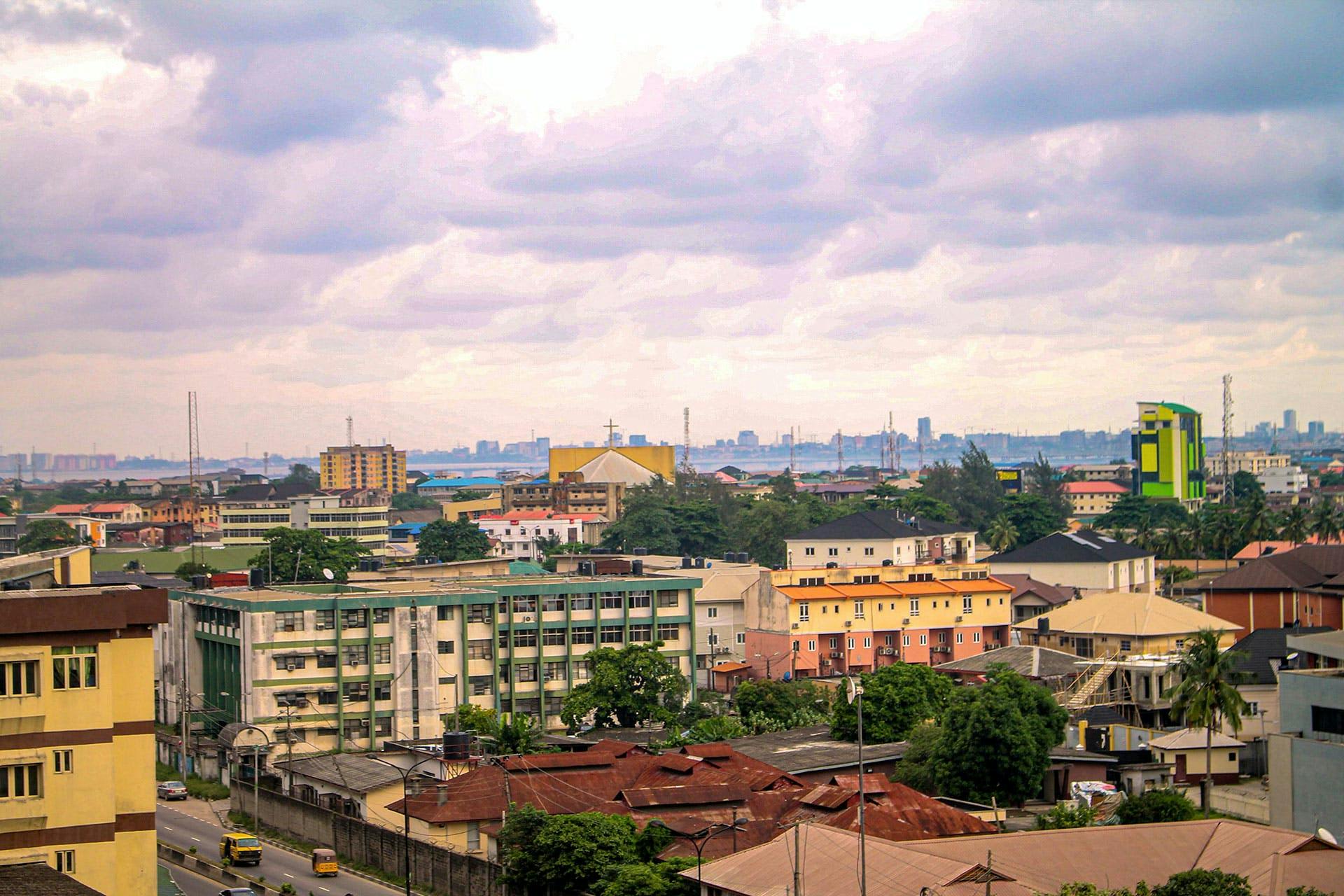
Lagos, Nigeria. Photo: Stephen Olatunde/Unsplash
Lagos: West Africa’s leading tech hub
Lagos is undisputedly the largest and fastest growing city in Africa and it’s also the continent’s leading tech hub. With over 21 million people living in the metropolitan area and a rising expat population, the city caters to many lifestyles. The sprawling city is always buzzing and has the hustle and energy you’d expect from a global megacity.
Poor infrastructure, unpredictable regulations and heavy traffic congestion are still real problems here, but Nigeria is making efforts to improve its infrastructure. At the beginning of 2020, the country increased the number of different types of visas from six to 79, making it more open to visitors. It also introduced an e-visa to increase international business and tourism.
Where government infrastructure is lacking, private companies have stepped in. Entrepreneurs will find Co-Creation Hub an invaluable resource. Founded in 2010, it has led the way in developing the Lagos ecosystem. Today, it has an accelerator program, coworking space and a growth fund. It has also partnered with large corporations such as Union Bank and Facebook to help further support startups.
Startups are also closing the gaps left open by the public system. TedPrime Hub’s Edubox makes learning anywhere for children accessible through internationally recognized education content, and Helium Health is building critical digital infrastructure to strengthen Africa’s healthcare systems.
Africa’s fintech hub
In 2019, Nigeria received 66% of the total investment into the fintech sector across Africa, and there’s a lot of support for fintech startups in Lagos. GreenHouse Lab is Nigeria’s first female-focused accelerator program and it scouts for fintech founders in particular.
PiggyVest, an online savings app, hit $1 billion in assets under management in 2018, and grew six times over between 2019 and 2020. Stripe’s acquisition of Paystack, a payments API for online and offline business, is another example of the strength of the Lagos fintech scene.
What really stands out in Lagos is the number of experienced entrepreneurs and corporate executives who have returned to the city. Often after decades abroad, many came back to support the Lagos startup scene from the ground up. Startup Guide Lagos features interviews with founders who built up the necessary infrastructure for the city’s tech scene to thrive, such as putting in stable internet cables.
[Want to know more about the founders supporting Lagos’ startup ecosystem? Order Startup Guide Lagos now.]
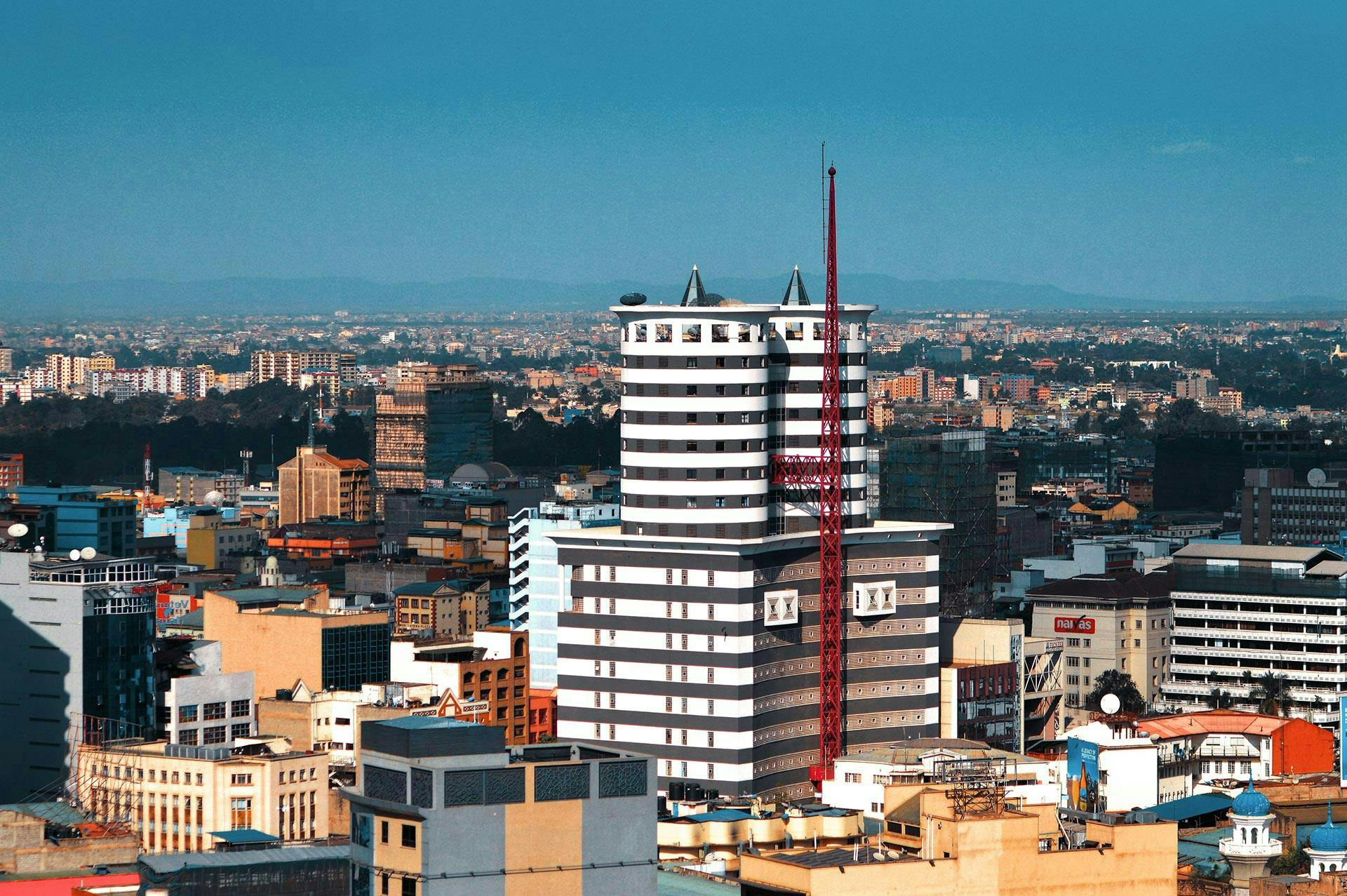
Nairobi, Kenya. Photo: Joe Calih/Unsplash
Nairobi: The Silicon Savannah in East Africa
Nairobi is a multicultural city of 4.4 million people and East Africa’s economic capital. All of Kenya’s 42 tribes are represented in the city, and It’s home to the third-largest UN headquarters after New York and Geneva. There are a number of multinational organizations with offices in Nairobi, such as SAP, Microsoft and IBM.
The average age in Kenya is 18, so the city has a young and bustling vibe. There’s no shortage of international restaurants and street vendors are everywhere you go – this is a city of natural entrepreneurs.
Nairobi’s tech scene has developed dramatically in recent years to become one of the most sophisticated on the continent. Underwater fiber optic cables provide excellent internet connectivity in the city and there’s a mobile-first approach that’s become part of everyday society. From mobile payments to ride hailing, there’s a growing infrastructure in place for new startups to build on.
A city of innovation hubs
There are more than 200 technology startups and enterprises in Nairobi, and coworking spaces play a key part in connecting them. Mettā Nairobi and iHub are two of the main hubs. They host events and masterclasses to support their members and also work with corporations, connecting them to startups and creating innovation programs.
Sustainability is a focus area for investors and support organizations here. In Nairobi, international organization Village Capital focuses on locally relevant issues like innovation in agriculture and fintech. 1Million Startups East Africa supports early-stage startups working on enterprises that relate to the UN’s Sustainable Development Goals, and financial inclusion startups are supported by AHL Venture Partners.
You’ll find a lot of different industries in Nairobi, but the use of technology for social good is at the heart of many local startups. Ecommerce and fintech were the first to appear, but now you’ll also find growth in B2B, sanitation, logistics and gaming. Sokowatch focuses on smallholder farmers, and Sendy provides transparency on end-to-end delivery of goods for companies. Sanivation tackles East Africa’s very real problem of sanitation by turning sewage into biomass fuels.
[Want to know more about Nairobi's startup ecosystem? Order Startup Guide Nairobi now.]
Inspired to start up in Africa? Get all four books for the special price of €40 until December 31, 2020.
